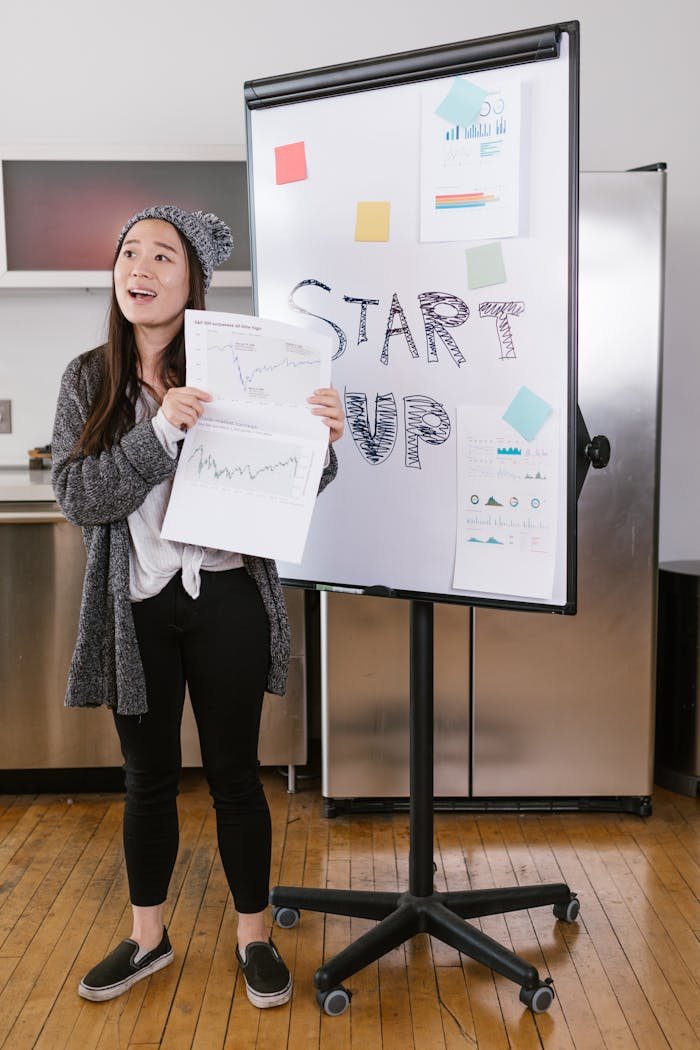Introduction
Personal development is a lifelong journey that involves improving your skills, knowledge, and mindset to achieve your full potential. Whether you’re looking to advance in your career, enhance your relationships, or simply become a better version of yourself, personal development strategies can help you get there. In this Q&A article, we’ll explore the best strategies for personal development, answering common questions and providing actionable tips to guide your growth.
Q1: What is Personal Development?
Answer:
Personal development encompasses activities and practices that improve your awareness, develop your talents and potential, enhance your quality of life, and contribute to the realization of your aspirations. It involves setting goals, learning new skills, and cultivating positive habits that lead to personal and professional growth.
Q2: Why is Personal Development Important?
Answer:
Personal development is important because it:
- Enhances Self-Awareness: Helps you understand your strengths, weaknesses, and areas for improvement.
- Boosts Confidence: Increases your self-esteem and confidence by achieving your goals.
- Improves Skills: Develops essential skills that can advance your career and personal life.
- Promotes Happiness: Leads to greater fulfillment and satisfaction in life.
- Encourages Lifelong Learning: Fosters a growth mindset and a commitment to continuous improvement.
Q3: How Can I Set Effective Personal Development Goals?
Answer:
Setting effective personal development goals involves the SMART criteria:
- Specific: Clearly define what you want to achieve.
- Measurable: Ensure your goals can be tracked and measured.
- Achievable: Set realistic and attainable goals.
- Relevant: Align your goals with your values and long-term objectives.
- Time-Bound: Set deadlines to create a sense of urgency and accountability.
Example:
Instead of setting a vague goal like “improve my communication skills,” make it SMART: “Attend a public speaking course and give three presentations within the next six months to improve my communication skills.”
Q4: What Are Some Effective Strategies for Personal Development?
Answer:
Here are some effective strategies for personal development:
1. Continuous Learning
- Courses and Workshops: Enroll in courses and workshops to acquire new skills and knowledge.
- Reading: Read books, articles, and blogs on topics related to your personal and professional interests.
2. Self-Reflection
- Journaling: Keep a journal to reflect on your thoughts, experiences, and progress.
- Meditation: Practice meditation to enhance self-awareness and reduce stress.
3. Goal Setting and Planning
- Set SMART Goals: Use the SMART criteria to set and achieve your goals.
- Create Action Plans: Break down your goals into smaller, manageable tasks.
4. Skill Development
- Identify Skills: Identify the skills you need to achieve your goals.
- Practice Regularly: Dedicate time to practice and improve your skills.
5. Building Positive Habits
- Habit Tracking: Use habit-tracking tools to monitor and reinforce positive habits.
- Consistency: Stay consistent and patient as you build new habits.
6. Seeking Feedback
- Constructive Criticism: Seek constructive feedback from mentors, peers, and colleagues.
- Self-Evaluation: Regularly evaluate your performance and progress.
7. Networking and Mentorship
- Build Relationships: Network with like-minded individuals and professionals.
- Find a Mentor: Seek guidance from mentors who can provide valuable insights and support.
Example:
If your goal is to improve your leadership skills, you might enroll in a leadership training course, read books on leadership, practice leading a team project, seek feedback from your team members, and find a mentor who can guide you.
Q5: How Can I Overcome Challenges in Personal Development?
Answer:
Overcoming challenges in personal development requires resilience, perseverance, and adaptability:
- Stay Motivated: Keep your end goals in mind and remind yourself why you started.
- Embrace Failure: View failures as learning opportunities and stepping stones to success.
- Be Patient: Personal development is a marathon, not a sprint. Progress takes time.
- Seek Support: Surround yourself with supportive and encouraging individuals.
- Adjust Goals: Be flexible and adjust your goals as needed based on your progress and circumstances.
Example:
If you face setbacks in achieving a fitness goal, remind yourself of the benefits of staying healthy, learn from your mistakes, and adjust your workout routine to better suit your lifestyle.
Q6: What Role Does Mindset Play in Personal Development?
Answer:
Mindset plays a crucial role in personal development. A growth mindset—the belief that abilities and intelligence can be developed through dedication and hard work—is essential for continuous improvement. It encourages you to embrace challenges, persist through obstacles, learn from criticism, and find inspiration in others’ success.
Example:
Adopting a growth mindset can help you tackle difficult tasks with confidence, view setbacks as opportunities for growth, and stay motivated to achieve your personal development goals.
Q7: How Can Technology Aid Personal Development?
Answer:
Technology offers various tools and resources to aid personal development:
- Online Courses: Platforms like Coursera, Udemy, and LinkedIn Learning offer a wide range of courses.
- Productivity Apps: Tools like Trello, Asana, and Todoist help you manage tasks and goals.
- Habit Trackers: Apps like Habitica and Streaks help you build and maintain positive habits.
- Meditation Apps: Apps like Headspace and Calm guide you through meditation and mindfulness practices.
- E-Books and Audiobooks: Services like Kindle and Audible provide access to a vast library of books on personal development.
Example:
Using an online course platform, you can enroll in a time management course to improve your productivity skills. Pair this with a productivity app to organize your tasks and a habit tracker to build consistency.
Conclusion
Personal development is a continuous journey that involves setting goals, learning new skills, and cultivating positive habits. By leveraging strategies such as continuous learning, self-reflection, goal setting, skill development, building positive habits, seeking feedback, and networking, you can achieve your personal and professional aspirations. Overcoming challenges, maintaining a growth mindset, and utilizing technology can further enhance your personal development efforts. Embrace the journey, stay committed, and watch yourself grow into the best version of yourself.

